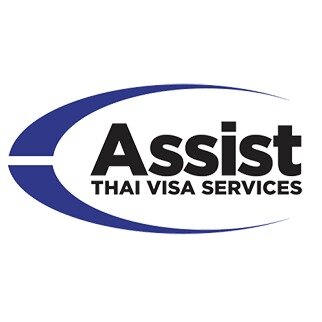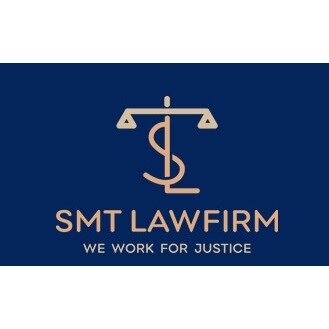About Real Estate Law in Chiang Mai, Thailand
Real estate in Chiang Mai, Thailand, has garnered significant attention due to the city's cultural richness and growing expatriate community. The region offers diverse opportunities, from residential properties to commercial real estate investments. Foreigners are subject to specific restrictions under Thai law, primarily concerning land ownership, which requires navigating a complex legal landscape. Understanding these intricacies is vital for ensuring secure and compliant property transactions in Chiang Mai.
Why You May Need a Lawyer
Engaging a lawyer in Chiang Mai's real estate market can be beneficial for various reasons. A lawyer can assist with:
- Property Transactions: Ensuring all documents are correctly prepared and that the transaction adheres to local laws.
- Land Leasing: Navigating the complex laws regarding long-term leases, especially for non-Thai nationals.
- Due Diligence: Conducting thorough checks on properties to avoid encumbrances or legal disputes.
- Company Formation: Assisting with setting up Thai companies to facilitate real estate ownership for foreigners.
- Dispute Resolution: Handling disagreements over property boundaries, contracts, or eviction matters.
Local Laws Overview
The real estate laws in Chiang Mai, as in the rest of Thailand, are governed by the Civil and Commercial Code, along with other specific legislation, such as the Condominium Act. Key aspects include:
- Foreign Ownership: Foreigners cannot own land outright but can own condominium units under certain conditions.
- Leasehold Agreements: Foreign individuals can lease land for up to 30 years, with the possibility of renewal.
- Thai Majority Ownership: Companies used by foreigners to own land must have majority Thai ownership.
- Land Acquisition by Companies: Specific permissions are required for foreign companies to hold land.
- Transfer Taxes and Fees: Property transfers are subject to taxes and fees that may impact investment decisions.
Frequently Asked Questions
Can foreigners legally own real estate in Chiang Mai?
Foreigners can own condominium units and lease land but cannot own land outright. They may enter into long-term lease agreements or set up companies with majority Thai ownership to purchase land.
What documents are needed for purchasing property in Chiang Mai?
Buyers typically need an agreement of sale, title deed, identification documents, and proof of funds. Additional documents might be required based on specific circumstances.
How does property tax work in Thailand?
Property owners are subject to specific taxes like the transfer fee, stamp duty, withholding tax, and a new Land and Buildings Tax, which replaced the older house and land tax in January 2020.
Is it necessary to conduct a title search before buying property?
Yes, conducting a title search is essential to ensure there are no encumbrances on the property and to verify the seller's legal rights to the property.
What is a usufruct agreement?
A usufruct grants a person the right to use and profit from a property owned by another. In Thailand, foreigners often use usufructs as a means to live on land they cannot own.
What should I be aware of when renting property in Chiang Mai?
Key considerations include lease terms, deposit requirements, and the legalities around rent increases and lease termination. A clear contract is essential to avoid disputes.
Are there restrictions on renovating a property in Chiang Mai?
Renovations must comply with local building codes and regulations. Permits may be required, and any changes should be approved by relevant local authorities.
Can a foreigner get a mortgage to purchase property in Thailand?
Some Thai banks offer mortgages to foreigners, typically for purchasing condominium units. Mortgage approval depends on factors like income, property type, and residency status.
When is a sale agreement legally binding in Thailand?
An agreement becomes legally binding once it is signed by all parties, and either a deposit is made, or other conditions precedents are fulfilled.
What happens if a property sale falls through?
If a sale fails due to unmet conditions or disputes, the party in breach may face penalties specified in the sale agreement, including forfeiture of deposits or legal actions.
Additional Resources
For additional assistance, the following resources can be beneficial:
- Chiang Mai Land Office: Responsible for property registrations and transfers.
- Thai Real Estate Association: Offers information on real estate best practices.
- Law Society of Thailand: Provides a directory of registered legal professionals.
- Ministry of Interior: Governing authority over land and property regulations.
Next Steps
If you require legal advice in real estate, consider taking these steps:
- Consulting With Experts: Contact a reputable lawyer specializing in Thai real estate law for personalized advice.
- Understanding Legal Obligations: Familiarize yourself with your rights and responsibilities under Thai law.
- Engaging Multiple Opinions: Obtain viewpoints from several experts to ensure you're getting well-rounded advice.
- Document Preparedness: Ensure all transactions are documented, and contracts are reviewed and approved by a legal professional.
Lawzana helps you find the best lawyers and law firms in Chiang Mai through a curated and pre-screened list of qualified legal professionals. Our platform offers rankings and detailed profiles of attorneys and law firms, allowing you to compare based on practice areas, including Real Estate, experience, and client feedback.
Each profile includes a description of the firm's areas of practice, client reviews, team members and partners, year of establishment, spoken languages, office locations, contact information, social media presence, and any published articles or resources. Most firms on our platform speak English and are experienced in both local and international legal matters.
Get a quote from top-rated law firms in Chiang Mai, Thailand — quickly, securely, and without unnecessary hassle.
Disclaimer:
The information provided on this page is for general informational purposes only and does not constitute legal advice. While we strive to ensure the accuracy and relevance of the content, legal information may change over time, and interpretations of the law can vary. You should always consult with a qualified legal professional for advice specific to your situation.
We disclaim all liability for actions taken or not taken based on the content of this page. If you believe any information is incorrect or outdated, please contact us, and we will review and update it where appropriate.






![Legal & Business Consultancy in Chiang Mai [LBC CHIANGMAI]](https://lawzana.com/storage/firms/2674/16209701614886.jpg)










